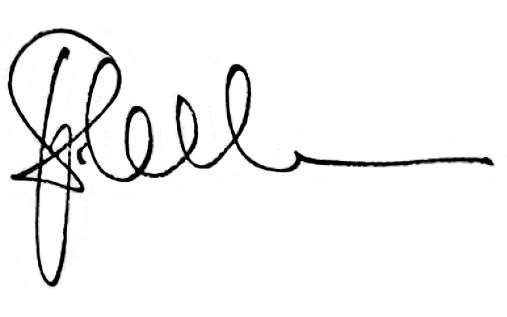Report of the Group auditors
Report on the audit of the consolidated financial statements
Opinion
We have audited the consolidated financial statements of CPH Chemie + Papier Holding AG and its subsidiaries (the Group), which comprise the consolidated income statement for the year ended 31 December 2020, consolidated balance sheet as at 31 December 2020, consolidated cash flow statement and consolidated statement of changes in equity for the year then ended, and notes to the consolidated financial statements, including a summary of significant accounting policies.
In our opinion, the consolidated financial statements give a true and fair view of the consolidated financial position of the Group as at 31 December 2020 and its consolidated financial performance and its consolidated cash flows for the year then ended in accordance with Swiss GAAP FER and comply with Swiss law.
Basis for opinion
We conducted our audit in accordance with Swiss law and Swiss Auditing Standards. Our responsibilities under those provisions and standards are further described in the “Auditor’s responsibilities for the audit of the consolidated financial statements” section of our report.
We are independent of the Group in accordance with the provisions of Swiss law and the requirements of the Swiss audit profession and we have fulfilled our other ethical responsibilities in accordance with these requirements. We believe that the audit evidence we have obtained is sufficient and appropriate to provide a basis for our opinion.
Our audit approach
Overview
Overall Group materiality: CHF 4,400,000
We concluded full scope audit work at seven Group companies in four countries. For two additional companies, specific financial statement line items were tested. Our audit scope addressed 92% of the net sales and 83 % of the total assets of the Group.
Additionally, we concluded reviews at a further two Group companies in two countries, which represented an additional 5 % of the net sales and 11 % of the assets of the Group.
As key audit matters, the following areas of focus were identified:
Impairment testing of tangible fixed assets of Perlen Papier
Assessment of the adequacy of the provisions for environmental measures
Materiality
The scope of our audit was influenced by our application of materiality. Our audit opinion aims to provide reasonable assurance that the consolidated financial statements are free from material misstatement. Misstatements may arise due to fraud or error. They are considered material if, individually or in aggregate, they could reasonably be expected to influence the economic decisions of users taken on the basis of the consolidated financial statements.
On the basis of our professional judgement, we determined certain quantitative thresholds for materiality, including the overall materiality for the consolidated financial statements as a whole as set out in the table below. These, together with qualitative considerations, helped us to determine the scope of our audit and the nature, timing and extent of our audit procedures and to evaluate the effect of misstatements, both individually and in aggregate, on the consolidated financial statements as a whole.
Overall Group materiality
CHF 4,400,000
How we determined it
1 % of net sales
Rationale for the materiality benchmark applied
We chose net sales as the benchmark because, in our view, it is an appropriate benchmark given the Group’s volatile earnings performance in recent years, and it is a generally accepted benchmark for materiality considerations.
Audit scope
We tailored the scope of our audit in order to perform sufficient work to enable us to provide an opinion on the consolidated financial statements as a whole, taking into account the structure of the Group, the accounting processes and controls, and the industry in which the Group operates.
The audit strategy for the audit of the consolidated financial statements was determined taking into account the work performed by the Group auditor and the component auditors from the PwC network and from a third party. Where audits were performed by component auditors, we ensured that, as Group auditor, we were sufficiently involved in the audit in order to assess whether sufficient appropriate audit evidence was obtained from the work of the component auditors to provide a basis for our opinion. The involvement of the Group auditor was based on audit instructions and standardised reporting. In addition, it included telephone conferences with the component auditors, a review of the risk analysis and participation in audit discussions for selected components in which local management, the local auditor and selected Group representatives also participated.
Report on key audit matters based on the circular 1/2015 of the Federal Audit Oversight Authority
Key audit matters are those matters that, in our professional judgement, were of most significance in our audit of the consolidated financial statements of the current period. These matters were addressed in the context of our audit of the consolidated financial statements as a whole, and in forming our opinion thereon, and we do not provide a separate opinion on these matters.
Impairment testing of tangible fixed assets of Perlen Papier
Key audit matter
The business environment of the Paper Division continues to be challenging and volatile. As a result of deteriorating profitability in the 2020 financial year, tangible fixed assets of Perlen Papier with a carrying value of CHF 253 million were tested for impairment.
In view of the size of the assets and the significant scope for judgement in estimating the future cash flows that can be achieved with these assets, we consider the impairment testing of tangible fixed assets of Perlen Papier as a key audit matter.
Please refer to note 16 in the notes to the consolidated financial statements.
How our audit addressed the key audit matter
We performed the following audit procedures with regard to the impairment testing of tangible fixed assets of Perlen Papier:
- Inspection of the minutes of meetings of the Board of Directors and its committees.
- Identification of potential indications of impairment.
- Discussion of the impairment tests with Management and with the Finance & Auditing Committee of the Board of Directors.
- Plausibility check of the assumptions used by Management concerning sales trends, costs and margins.
- Comparison of the assumptions used in the prior year’s impairment tests with the actual results achieved to determine, in hindsight, how accurate planning had been in the past.
- Recalculation of the discount rate as derived by Management and comparison with a rate that we determined ourselves.
- Assessment and testing of the mathematical accuracy of the impairment tests, performed by Management, which were based on a DCF method.
The results of our audit support Management’s chosen impairment testing method, the related assumptions and budget figures.
Assessment of the adequacy of the provisions for environmental measures
Key audit matter
As at the balance sheet date, short-term and long-term provisions for environmental measures amounting to CHF 23 million have been recognised in connection with the closure and disposal of the production site at Uetikon and the obligation to decontaminate and absorb the costs of various landfills and properties.
In view of the magnitude of the future costs of the environmental measures and the significant estimates involved in calculating them, we consider the completeness and accuracy of these provisions as a key audit matter.
Information regarding the provisions for environmental measures can be found in notes 25 and 27 of the notes to the consolidated financial statements.
How our audit addressed the key audit matter
We performed the following audit procedures:
- Discussions with Management and the Finance and Audit Committee.
- Review and assessment of Management memos and file notes concerning the amount of provisions recognised.
- Sample-based testing of the calculations of and the assumptions relating to the cost estimates of the environmental measures.
- Inspection of the contract awards, expert opinions and bids on which the calculations are based and of the correspondence, meeting minutes and cost overviews of the joint working group set up with the environmental authority of the Canton of Zurich.
- Assessment of whether the disclosure of the provisions complies with the requirements of Swiss GAAP FER.
The evidence we obtained from our audit supports the provisions for environmental measures recognised as at the balance sheet date and the related disclosures.
Responsibilities of the Board of Directors for the consolidated financial statements
The Board of Directors is responsible for the preparation of the consolidated financial statements that give a true and fair view in accordance with Swiss GAAP FER and the provisions of Swiss law, and for such internal control as the Board of Directors determines is necessary to enable the preparation of consolidated financial statements that are free from material misstatement, whether due to fraud or error.
In preparing the consolidated financial statements, the Board of Directors is responsible for assessing the Group’s ability to continue as a going concern, disclosing, as applicable, matters related to going concern and using the going concern basis of accounting unless the Board of Directors either intends to liquidate the Group or to cease operations, or has no realistic alternative but to do so.
Auditor’s responsibilities for the audit of the consolidated financial statements
Our objectives are to obtain reasonable assurance about whether the consolidated financial statements as a whole are free from material misstatement, whether due to fraud or error, and to issue an auditor’s report that includes our opinion. Reasonable assurance is a high level of assurance, but is not a guarantee that an audit conducted in accordance with Swiss law and Swiss Auditing Standards will always detect a material misstatement when it exists. Misstatements can arise from fraud or error and are considered material if, individually or in the aggregate, they could reasonably be expected to influence the economic decisions of users taken on the basis of these consolidated financial statements.
A further description of our responsibilities for the audit of the consolidated financial statements is available on the website of EXPERTsuisse: http://expertsuisse.ch/wirtschaftspruefung-revisionsbericht. This description forms part of our auditor’s report.
Report on other legal and regulatory requirements
In accordance with article 728a paragraph 1 item 3 CO and Swiss Auditing Standard 890, we confirm that an internal control system exists which has been designed for the preparation of consolidated financial statements according to the instructions of the Board of Directors.
We recommend that the consolidated financial statements submitted to you be approved.
PricewaterhouseCoopers AG

Thomas Illi
Audit expert
Auditor in charge

Josef Stadelmann
Audit expert
Zurich, 12 February 2021
